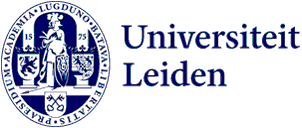
Kaare Strøm award for institute member Thijs Vos
This summer, political scientist Thijs Vos received the Kaare Strøm prize for his paper ‘Power or Ideology? What structures legislative voting behaviour in Dutch municipal councils, ideology or coalition-opposition dynamics?' He was awarded the prize during the ECPR summer school on parliaments in Frankfurt.
Insight into Voting Behaviour in Municipal Councils
In his paper, Vos examined which patterns structure legislative voting behaviour in 142 Dutch municipal councils. The main finding is that voting is primarily structured by the coalition-opposition division and only to a lesser degree by the ideological positions of parties.
The laudatio of the selection committee reads as follows: "A well-written paper that presents a theory-driven empirical analysis. It focuses on a key issue in the legislative studies, i.e. the prerequisites of legislative voting. The paper advances our understanding of a) the consensual voting behaviour in local councils, b) the role of coalitions in explaining voting behaviour, independent of ideological positions. The paper stands out because of its careful exploration of the selected cases, its well-defined theoretical bases and its significant empirical effort that combines own data collection efforts in combination with a state of the art data analysis."
Personal Engagement
Thijs Vos feels a strong connection to his subject. It lies precisely at the intersection of his interests: parliamentary voting and local politics. According to Vos, "the decisions that representatives make have a significant impact on people. It is interesting to explore to what extent the choices of parliament members are influenced by their participation in coalitions or by ideological positions."
Local politics is tangible and close to home, with issues like parking spaces and social provisions being directly relevant to residents. Vos remarks, "It’s not just about abstract theories; it’s about the real world and the influence council decisions have on people’s lives."
During the time he was working on this paper, Vos also became politically active. As political scientist he viewed local politics mainly as a laboratory for studying parliamentary behaviour. "After becoming a council member myself, I quickly realised the intrinsic value of local politics as a research topic for political scientists," he says. "As a council member, I now see firsthand how important the decisions made by municipalities are."
At the summer school, Vos was present to deepen his knowledge in legislative studies, meet colleagues with similar academic interests, and gather feedback on his paper. "It’s valuable to share ideas and learn from others," he emphasizes.

Future Research
As a PhD candidate, he focuses his dissertation on political behaviour in municipal councils. He examines both the voting behaviour of council factions and the use of council instruments such as motions and amendments. While earlier political science research primarily focused on national parliaments, Vos is shifting this focus to Dutch municipal councils. "Political decision-making does not only occur in far-away parliaments, but also in countless city and town halls close to home. It’s time that we pay more attention to this level of our political system," he says. The dissertation will ultimately consist of four chapters, one of which is this paper. The scope and ambition have since grown significantly; he has now analyzed more than a hundred municipalities.
A Valuable Recognition
The Kaare Strøm prize means a lot to Vos. "It is a great honor, especially since there has been limited attention to political behavior in municipal councils so far," he states. His goal is to connect political science research on parliamentary behavior with local politics. "This recognition is an encouragement to continue on the path I’ve embarked on."
Kaare Strom
Kaare Strøm (born 1953) is a Norwegian political scientist. His work on political parties, coalition theory, European politics and the institutions of parliamentary democracy is highly regarded by colleagues and students. Strom is currently a professor at the University of California, San Diego.
